Hong Kong’s opposition-free legislature unanimously voted new security legislation into law on March 19, 2024, completing what officials have called the city’s “constitutional duty.”
The process of enacting a new security law began on January 30, when Chief Executive John Lee launched a four-week public consultation period for the legislation required under Article 23 of the city’s mini-constitution.
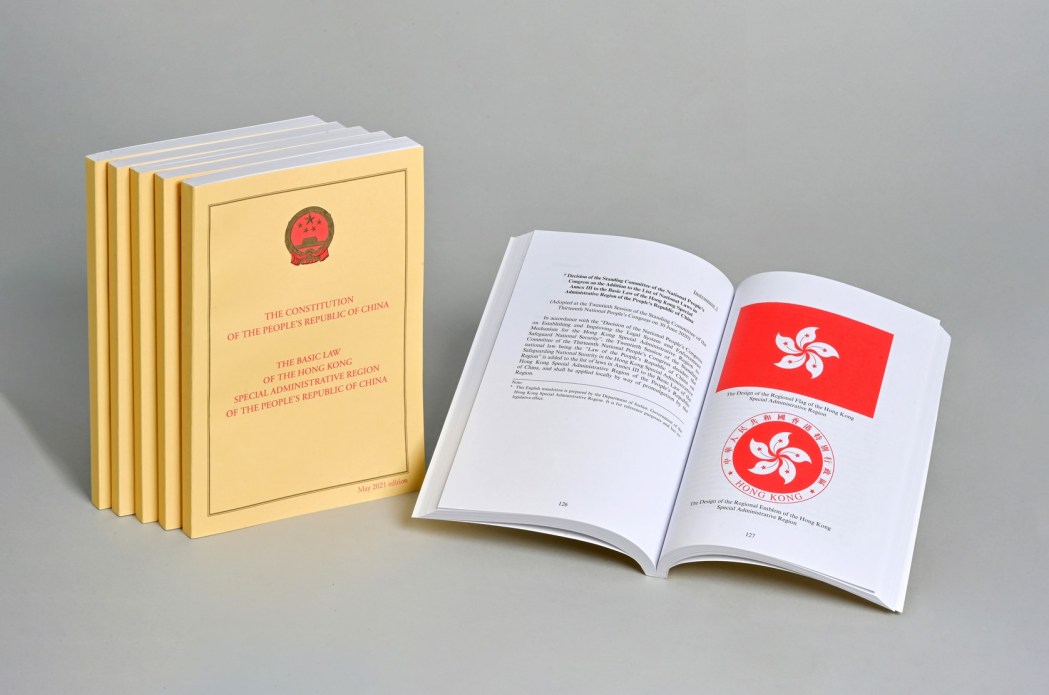
Lawmakers in a dedicated committee spent seven consecutive days discussing the bill in the “patriots-only” Legislative Council, from which the opposition was effectively shut out following an overhaul in 2021.
Addressing lawmakers after the legislation was passed, Chief Executive John Lee emphasised multiple times that the occasion was a “historic moment.”
“We have fulfilled our constitutional responsibility of enacting local legislation under Article 23 of the Basic Law. We have accomplished this historic mission, living up to the trust placed in us by the central government and the country,” Lee said before gathering with top government officials and lawmakers for a group photo.
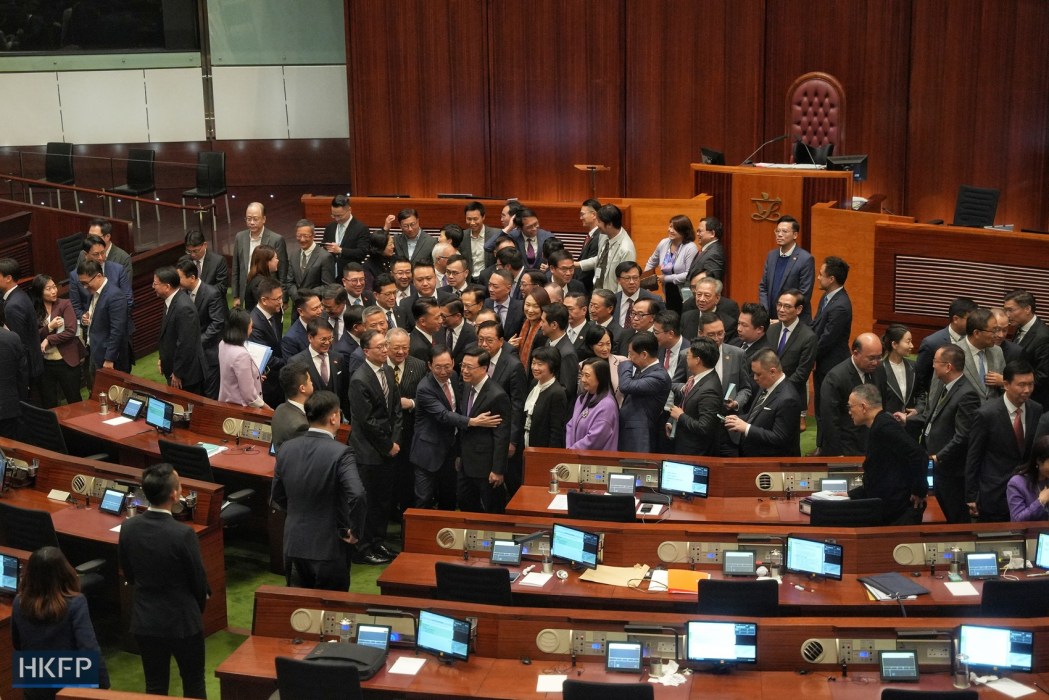
Reactions poured in after the law’s passing, with pro-Beijing parties and business groups hailing the passage of the legislation. Overseas NGOs and activist groups, however, expressed concern about the effect it may have on freedom of expression and civil society.
HKFP rounds up everything you need to know about Article 23, how authorities’ attempts to pass it failed in 2003, and why officials said it was necessary after Beijing’s security law was enacted in 2020.
What is Article 23?
According to Article 23 of the Basic Law, Hong Kong’s mini-constitution which came into force after the city was returned to Chinese rule from Britain in 1997, the city’s government must enact its own security law to ban seven types of acts including treason and secession.
Over the years, the legislation has become known colloquially as Article 23.
Which crimes fall under Hong Kong’s security law?
The legislation covers five areas of crime: treason, insurrection, theft of state secrets and espionage, sabotage endangering national security, and external interference.
While most of the offences have been modelled on amendments of existing laws, such as expanding the definition of treason, a series of new offences have been suggested to deal with acts linked to “serious civil disturbance within China” and “modern-day modes of espionage.”
See also: Hong Kong’s homegrown security law seeks to define ‘state secrets’ along China’s legislative line
How is it different from the Beijing-enacted national security law?
The Beijing-drafted national security law, passed in June 2020 after months of protests and unrest the previous year, criminalises secession, subversion, collusion with foreign forces, and terrorism.
Per Article 23, the city's own security law should prohibit seven types of offences - treason; secession; sedition; subversion against the central government; theft of state secrets; foreign bodies’ conducting political activities in the city; and local bodies establishing ties with foreign bodies.
Why does the government say a Hong Kong security law necessary?
Chief Executive John Lee has said that enacting the legislation required under Article 23 was necessary and urgent. During a press conference to announce the public consultation in January 2024, he cited rising geopolitical tensions and "potential sabotage and undercurrents" as risks to national security.
"Some of the 'independent Hong Kong' ideas are still being embedded in some people's mind and some foreign agents may still be active in Hong Kong," he said.
"We can't afford to wait," he added, describing the legislation as a "constitutional responsibility."
"It's... 26 years we have been waiting. We shouldn't wait any longer."

Authorities have said there are "gaps" in the Beijing-enacted law that must be plugged by Article 23. "There must be legislation for the... parts of Article 23 that have not been covered," John Lee said when he was security secretary in 2021.
In 2022, Secretary for Security Chris Tang said that apart from the fact that enacting a local security law was a constitutional responsibility, there were also "practical needs" as far as national security was concerned. According to Tang, the city had seen "drastic changes" in national security risks and "social chaos" including the Umbrella Movement in 2014, the Mong Kok unrest in 2016 and the anti-extradition protests in 2019, the latter two of which he described as "riots."
How did society react over 20 years ago?
The post-Handover Tung Chee-hwa administration first proposed implementing Article 23 in 2002, receiving over 90,000 submissions during a three-month public consultation period. From local pro-democracy parties to international NGOs, groups across a range of sectors opposed the move, calling it a threat to Hong Kong's freedoms. The banking and business communities also said they feared the law would undermine the city's transparency and openness of information.
The bill was presented to the Legislative Council for a first reading in February 2003, with pro-democracy lawmakers holding up slogans and facing off against government officials.
"Mr. Tung, how many people need to take to the streets in order for you to listen?" then-lawmaker Margaret Ng said in a legislative meeting.
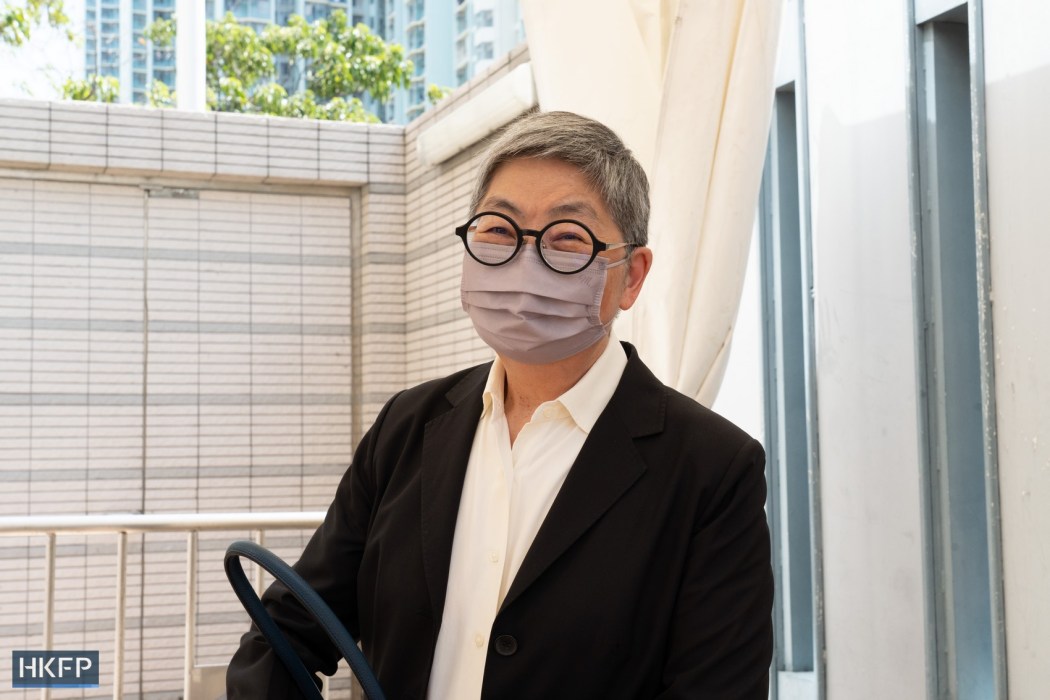
In April 2003, the Hong Kong Journalists Association said in a submission to the Legislative Council it was "totally opposed" to the enactment of Article 23 and there was "no pressing social need" for it. It said that among the offences outlined in Article 23, sedition and theft of state secrets posed the "greatest threat to freedom of expression."
On the former, the association said the government's argument that the world's "most liberal democratic jurisdictions" also have sedition offences ignored the fact that the laws had been left unused for years and that there were calls from those countries' law reform commissions to scrap the offences. On the theft of state secrets offence, the HKJA said it was concerned that journalists could be prosecuted for using information they did not know was obtained illegally.
The government proposed several amendments to the bill following the public consultation, including introducing "public interest" as a defence for the "unlawful disclosure of certain official information," particularly for the media. It also proposed a three-year prosecution time limit for the offence of handling seditious publications.
How did the international community respond?
Western countries expressed fears about the effect of Article 23 on the city's freedoms, with the US and European Union among those issuing statements.
In a December 2002 statement, the EU said it noted concerns related to some of the offences' extraterritorial effect; free information flow; and the broad definitions of some of the offences.
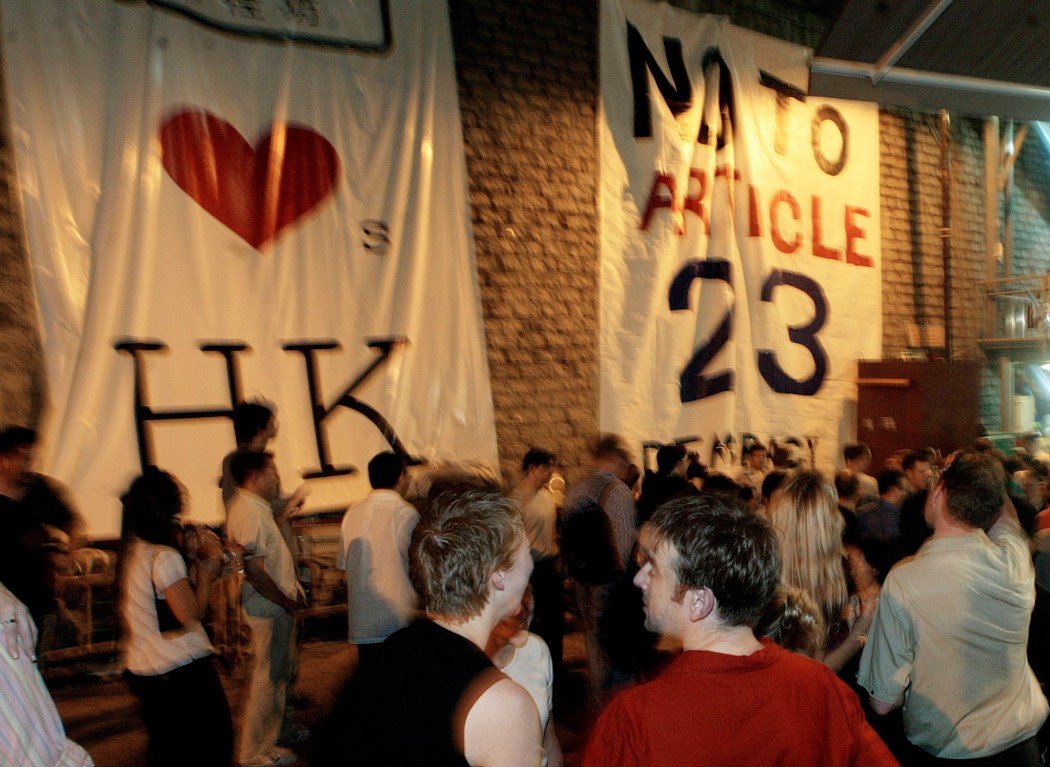
According to the EU, the European Parliament also adopted a unanimous resolution urging the government to ensure that the local security laws would not be "used to silence opposition, restrict freedom of speech... the right and freedom to form trade unions, to strike and undertake other cultural activities in accordance with the Basic Law."
The International Federation of Journalists, to which the HKJA is affiliated, said Article 23 proposed "blatant oppression of basic civil liberties."
Why was the legislation eventually postponed?
On July 1, 2003, the anniversary of the Handover and traditionally a day of protest, a mass march was held to protest Article 23 and call for Tung to step down. Some 500,000 people took to the streets, according to the organisers. Protesters held up banners reading "No to Article 23" and "Shame on you."
Tung, however, said the government would press on with the legislation. In response, executive councillor James Tien - who had broken from the government and spoke out against Article 23 - resigned in protest from his post in the top-tier government advisory board. As the chairperson of the Liberal Party, he also withdrew his party's support for Article 23, meaning the Legislative Council would not have enough votes to pass the legislation.

The next day, Tung announced he would postpone the bill's second reading, adding that the decision was "really in further response to the views and concerns expressed by the people."
Then-security secretary Regina Ip, who had overseen the legislation, resigned shortly afterwards citing personal reasons.
"I am extremely regretful that we were unable to complete the legislation... but as a Chinese national and the secretary for security, I have the responsibility to push forward this sacred work," Ip said in a statement at the time.
"I firmly believe [Article 23]... will be able to safeguard national security and will not affect Hong Kong peoples' rights and freedoms. I strongly believe that my successor will be able to complete the legislative work soon," she added.
Authorities said in the meantime that they would restart dialogue with the public, adding that the coming consultations would be "even more extensive than the previous one."
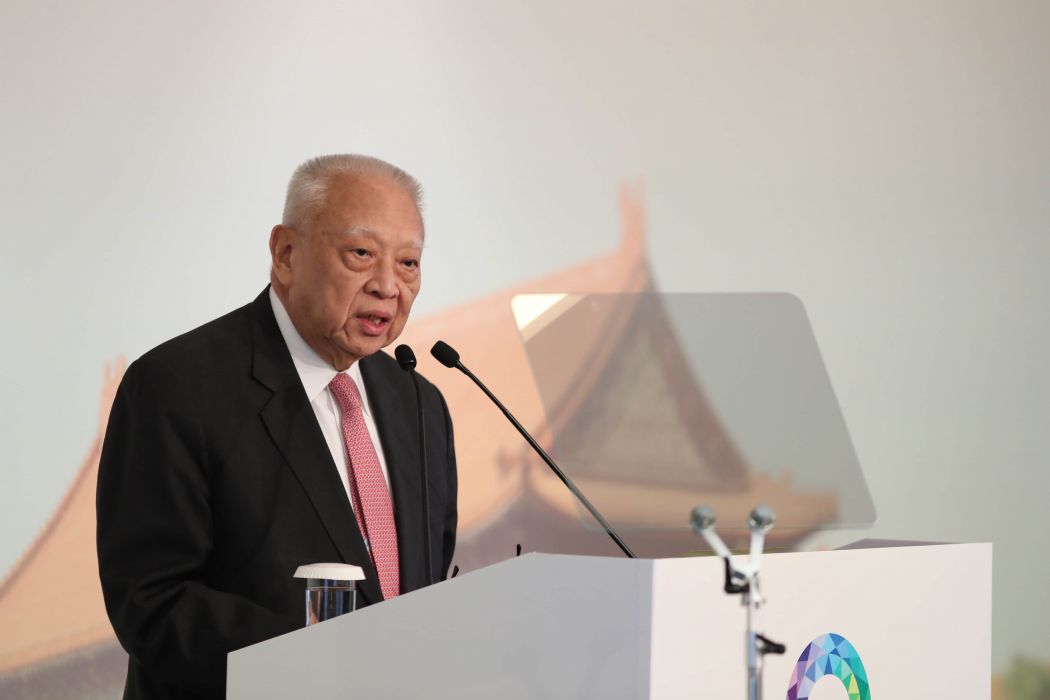
In September 2003, Tung announced he would withdraw the bill altogether. He said there were still "concerns" about the legislation, and a withdrawal would allow the public more time to "understand and think."
The then-chief executive also cited the SARS pandemic that began earlier that year, which killed nearly 300 people and brought the economy to a standstill. "What we need is for society, the government, citizens from all walks of life and the business company to focus their efforts on economic development and increasing employment," he said.
Tung himself resigned in March 2005, in the middle of his second term.
What has been said about Article 23 over the years?
After Tung's failed attempt to pass Article 23, successive administrations said they had no timetable for restarting legislative work. The then-chief executive Leung Chun-ying said in 2016 after the oath-taking saga - when incoming pro-democracy lawmakers lost their seats after being accused of taking their oaths improperly - that a local security law had "now become a practical question." Still, authorities did not announce plans for legislation.
In 2018, then-chief executive Carrie Lam said authorities had to "take stock of the situation" before enacting Article 23. "[We] will only do so when the time and circumstances are right," she said.

The government's tone changed in the lead-up to Beijing's imposition of its own security law. In May 2020 Lam said it was "disappointing" that Article 23 had not been passed 23 years after Hong Kong was returned to China.
In December 2021 Lam said the government aimed to launch a public consultation on the enactment of Article 23 before her current term ended in six months' time.
But the consultation was delayed due to the city's fifth Covid-19 wave, security chief Chris Tang said in May 2022.
This time round, public opposition will likely be muted. Dozens of civil society organisations and a variety of media outlets have shut down in the wake of Beijing's security legislation while a political revamp made it near-impossible for pan-democrats to secure a seat in the legislature.
Support HKFP | Policies & Ethics | Error/typo? | Contact Us | Newsletter | Transparency & Annual Report | Apps
Help safeguard press freedom & keep HKFP free for all readers by supporting our team
























